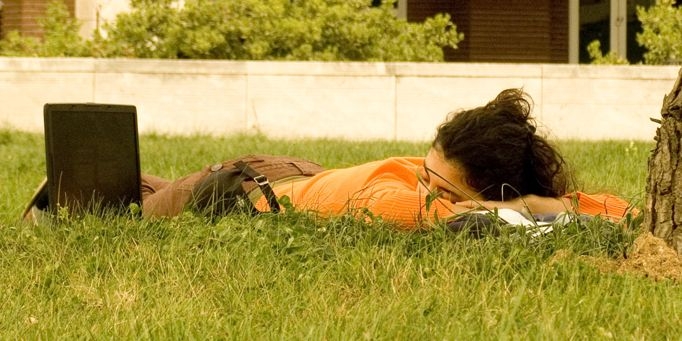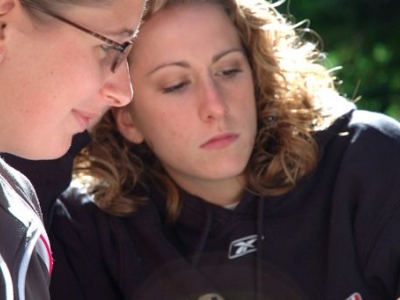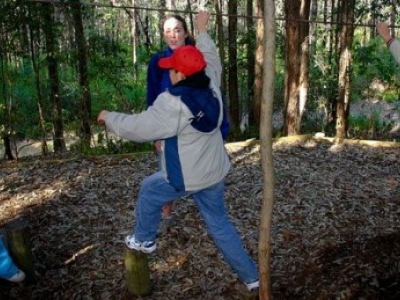
Surviving Year 12: Part 2
Helping your teen balance the educational, emotional, and spiritual demands of their final school year.
In Part 1, I urged parents to seek support from other Christians, while encouraging their son or daughter to find support from someone who isn’t their peer. I also issued the challenge to all adults to talk about more than just 'the end of school' with those in Year 12.
Here, I offer three more suggestions on how to be wise and Godly during your child’s final year of school.
1. Guard against idolatry
Education is one of the gods of our age. Sometimes, even in Christian families, education becomes a little god for us. Now, I love to learn - I have spent a lot of my life learning and pushing myself. But education is not my saviour. It isn’t even the primary source of my identity, neither is whatever job I happen to do.
Parents, your child will not die poor and lonely, surrounded by cats, if they don’t score a certain number in their final exams. “Yes, yes,” you might think to yourself. But do you really believe this? Or has a little part of you given way to the fear that maybe everything does rely on this year? Push back. In 1 Corinthians 10:14, Paul encourages his brothers and sisters to flee, to run away from, idolatry.
One of the ways idolatry can express itself is when we, thinkingly or unthinkingly, picture our families as businesses. Mum and Dad, you’re not the CEO and CFO. You may have spent money on education costs, extracurricular activities, music lessons, private tutoring, educational family trips to Uluru or Peru, and you may be tempted to think, “I’ve invested in my child’s education; I deserve to see a decent return.” Please, stamp this out. Why? Because that’s not how God the father treats us, his children. He spent a whole lot more than 13 years worth of school fees to redeem you from your sin, to grab you when you were his enemy and, in Christ, to have you as his adopted son or daughter. He showed and continues to show you grace. Please, show grace to your children, and push back at society’s ideas about money and investment in education. What’s the antidote to idolatry? Well, I reckon it’s thankfulness. Have a think about what Paul is getting at in Col 2:6-8. Thankfulness to God can help us to resist idolising education.
Help your teenager to be thankful to God for their accomplishments while recognising that these do not define them. Encourage them to recognise their own God-given gifts and strengths and how they can be used to serve others. Help them to study for the sake of others, not for their own pride, income or status. In thinking of education and career, instead of a framework of pride and status, how about a framework of thankfulness and service?
2. Set the tone at home
You may be tearing your hair out over the seemingly endless ways your child can procrastinate. Can I encourage you to take a step back and think about what might be going on? Common issues include general anxiety around study; fear of both failure and success; and distractions from the internet and their phone; distractions from the fridge, siblings, and from you. So what can be done?
Parents, your child’s discipleship and godliness is infinitely more important than their physics half-yearlies. With this in mind, please resist the urge to discipline your child by not letting them be part of youth/church/Bible study each week. Resist the urge to even threaten this. Likewise, you may need to give your child a little push out the door at times. Youth/church/Bible study shouldn’t be seen as optional extras. Really, how much study are they actually going to do if they stay home from youth at 7-9pm on a Friday night? What are you teaching them about being part of church in general – that it’s just an opt-in when I feel like it community?
I’ve spoken with a number of families who have let their child stop doing little tasks at home (like packing the dishwasher) during their final year of school. “We want to free them up so they only have to worry about their studies.” Younger siblings are told to do more at home and not to disturb their big sister or brother, “because they’re doing the HSC.” A cacoon forms.
While I appreciate the desire to free them up to study, these kind of measures at home can be harmful. Firstly, excusing a child from tasks at home they may have been doing for many years can fuel the notion that this school year is more important than it really is. Rather than reduce the pressure, it can bizarrely add to the anxiety because the child can feel like a special HSC spotlight is on them, 24/7. Secondly, it can bring discord between siblings, which happens easily enough anyway! Younger children can feel like parents have a favourite and can dread their own approach to the end-of-school workload. Thirdly, it cushions the student from the adult life they are rapidly approaching. How will this 17 year old cope with cooking and cleaning for himself in a Uni share house or alongside a full time apprenticeship just a few months after not being expected to clear the table from the meal he doesn’t yet know how to cook?
You may not be the CEO of a business called your family, but you do get to shape the tone at home. During the final year of schooling, try to keep things as normal as possible. Talk through what their week looks like and agree on tasks that they’ll do at home, like taking the bins out on bin night, or cooking on a Thursday night. Come up with a flexible plan that allows your child to get some work done and also remain a normal part of the family. If they feel like home is relatively calm, it can reduce their anxiety about the end of school. Please don’t nag – once they know it’s bin night, don’t mention it every ten minutes from 4pm when they walk in the door. This will only be met with a sullen “I know.”
3. Doing one thing at a time
We drill the importance of mono-tasking into the students who come on our study camps. We all do one thing at a time – study, free time, Bible study, meals, dragon boating, whatever. One thing at a time.
This translates back home (except maybe dragon boating). So, if your daughter is at youth Bible study, encourage her to be at youth Bible study, not in the corner trying to read her English text. If she’s writing her English paper, she’s not watching the TV. If she’s watching a movie on a Saturday night, she doesn’t need to feel guilty about school work. Figure out how you can support your teen in doing one thing at a time, and doing it well.
What about that pesky Facebook? There are a bunch of sites your 17 year old probably uses which may not be inherently harmful, but they can whittle away time and headspace. Thankfully, there are a range of timesaver apps for computers and smart phones. I use a program called leechblock to help me stay on task when I’m on my computer. It’s installed onto the search engine and I have asked it to block certain websites between certain hours, and other websites I can visit for a certain amount of time per hour.
In consultation with your child, come up with a plan they can ‘own’ to help them use time on the computer well. For example, you may decide together that she can only access the web-based interactive game she loves playing from 5pm Friday until 10pm Saturday, and not during the week. You might decide that he can access all his social media sites for only 5 minutes per hour, and all internet cuts off at 10:30pm. A blanket ban on the internet may not be the best way forward, and it doesn’t recognise that there can be benefits to the little brain breaks of five minutes of scrolling through an inane newsfeed.
Once you’ve got a game plan, drop the exasperating comments you may be tempted to make. So, when you walk past and see that they’re on some website that’s not related to school work, resist the urge to goad them with, “I thought you had a report to write.” It’s normal for your fears and frustrations from past times of their procrastination to prompt comments like this, but it doesn’t help you, your child or the tone in your home. If they’re on their ten minutes of YouTube for the hour, just let them look at the weird screaming-goat-that-sounds-like-people clip that they think is hilarious.
This leads us to rest. During the final year of school, shared agreement about roughly when and how they’ll have down time each day and each week is crucial to help prevent them imploding. You know your child – do they rest well on their own, on a walk with the dog? Or do they need to be with their mates? Do they love The Voice? Perhaps they’re like a zombie at 4pm but bright at 9pm. Then let them completely chill out after school, try and have an early dinner, and help them do some solid school work from 7:30pm-9:30pm. Planning for decent rest time and work time cultivates good habits. Help them to resist the incessant thought in the back of their mind, “I should be studying.”
Once the final exams hit, keep letting your child take rest time as well as study time.
It’s my prayer that over the next few months the six things I’ve talked through in these articles will help you as you parent your child. Remember the gospel of grace that prepares good works for us (Eph 2). I’ll be praying for you!
Anna Boxwell studied at Moore College and currently lives in Canberra where she is part of Lanyon Valley Anglican Church. She is about to direct her fifth Youthworks HSC Study Conference.
For more articles from Growing Faith, subscribe to our monthly e-newsletter.
To hear about the latest books and resources from Youthworks Media, subscribe here.







